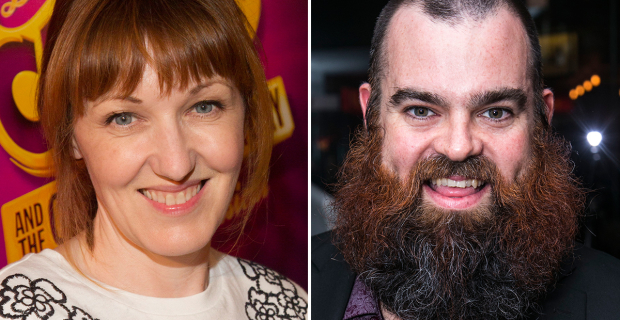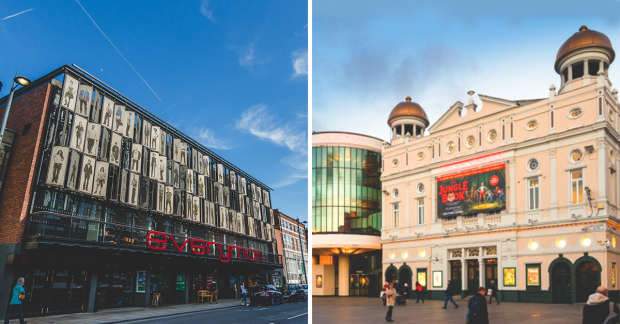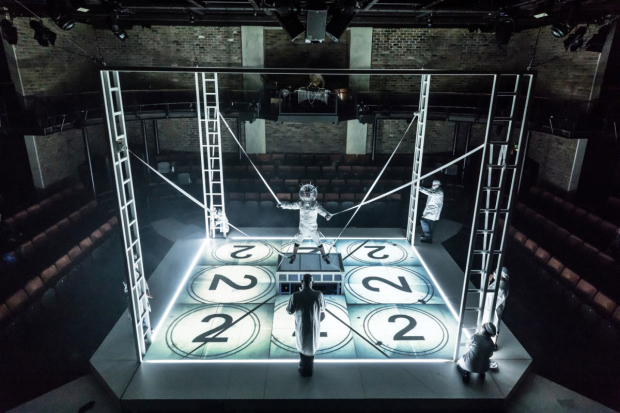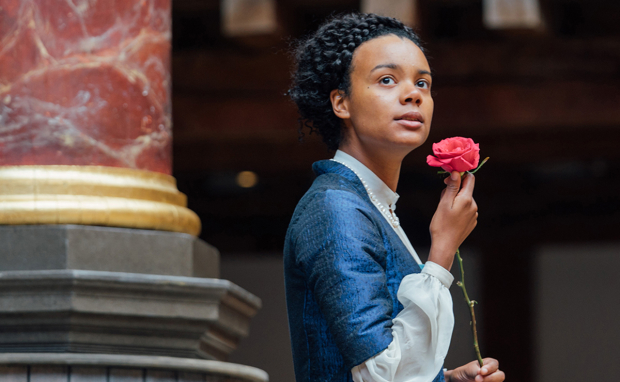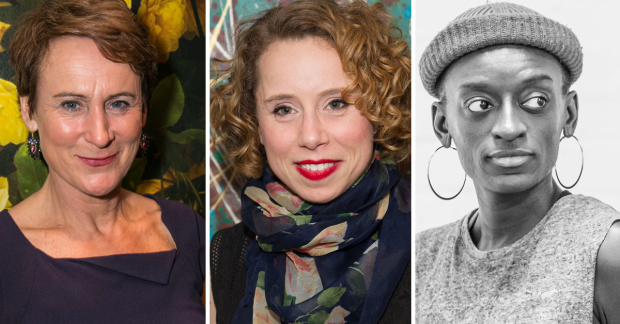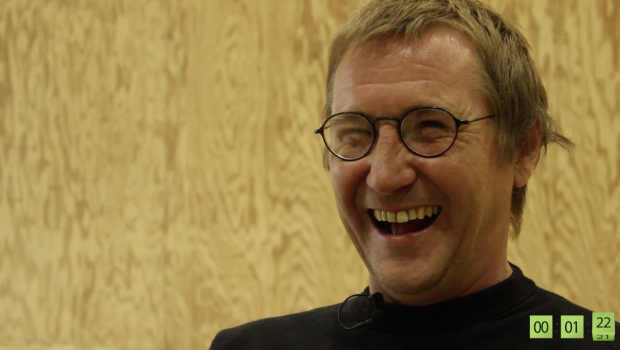Review: Edward II (Shakespeare's Globe)
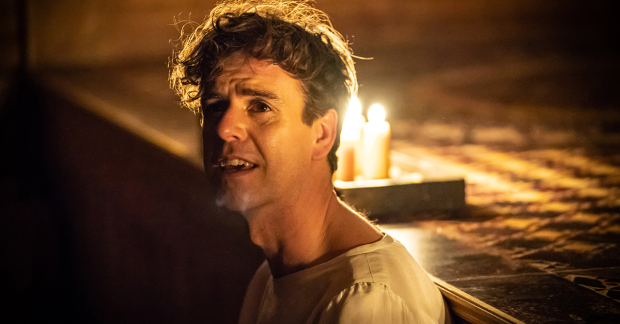
© Marc Brenner
Given that films about royal 'favourites' can now be Bafta-winning box office draws, you'd have to say that the Globe's staging of Edward II has come along at a very convenient time indeed. This much-analysed play by Christopher Marlowe considers the possibly-gay relationship between the eponymous king and his fave Piers Gaveston – and how it triggered a violent uprising by the barons.
Whether the medieval monarch and his close ally were ever more than just good pals is a matter of speculation (and Edward's gruesome murder by the insertion of a red-hot poker is probably myth). But Marlowe let nothing get in the way of his own entertaining horrible history. And for his part, director Nick Bagnall hacks back the text even more – scrapping certain characters to create a more intimate spectacle suited to the cramped, candlelit confines of the Sam Wanamaker Playhouse.
Edward (Tom Stuart) is a leader for our times: politically boxed-in on all sides, and desperate to say that what goes on in his personal life has no impact on his ability to govern. In Marlowe's eyes, the King's relationship with Gaveston (Beru Tessema) is undoubtedly sexual. Their early romantic exchanges offer the play's most poetic passages, and are deftly handled by both men. Sometimes it's very codified: with a wink, Edward presents himself to his friend as "another Gaveston".
Oddly, though, their sexuality is quite irrelevant. What's intriguing about Marlowe's 16th century work is that the barons object to Gaveston not out of homophobia, but because they hate to see a low-born man elevated to be the King's de-facto deputy. It's a laugh to watch the likes of Lancaster, Warwick, and Mortimer seething while Edward airily confers title after title upon his favourite.
That's one of several memorable moments in an impressive first half. While the second drags by in comparison (thanks to Edward's lengthy, Lear-esque lamentations in exile), there is one clear highlight. It's the development of the Queen Isabella (Katie West): neglected and wronged by her husband, but gradually empowered into fearsome conspirator who comes to decide the King's fate.
Ultimately a story of fighting families and lovers, Edward II is a domestic drama just as much as it is an historical epic into which Marlowe squashed 20 years of events. Lots of the action takes place not on battlefields but in bedchambers by people in pyjamas. The final disrobing of Edward – and the incident with the poker – is the ultimate intrusion of political consequences into the private realm.
Setting aside its qualities as a right-royal soap opera, the show's core appeal is as a surprisingly nuanced depiction of same-sex love early-modern theatre. While Bagnall's production is generally low on frills (setting aside some charming musical accompaniments), it is a highly involving watch which gallops along at the right pace – and has been stripped back in order to reward a newcomer.



